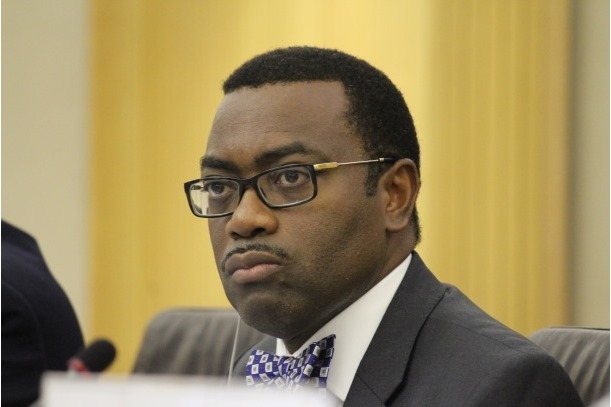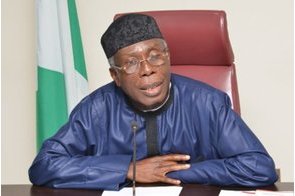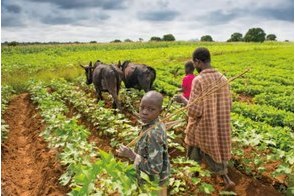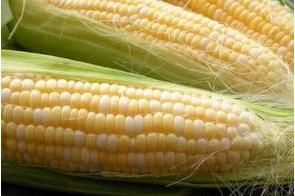AfDB partners World Bank and others to mobilise $1 billion for agricultural technologies

Summary
The funding is being raised under the AfDB’s Technologies for African Agricultural Transformation.
The African Development Bank (AfDB) President, Akinwumi Adesina, has disclosed that the bank is working together with development partner institutions, including the World Bank, the Alliance for Green Revolution in Africa (AGRA) and the Bill and Melinda Gates Foundation to mobilise $1 billion to scale up agricultural technologies across the continent.
The funding is being raised under the AfDB’s Technologies for African Agricultural Transformation (TAAT), which is an ongoing initiative of key priority to the AfDB's agricultural transformation agenda also known as the Feed Africa Strategy. Adesina gave an update on the progress of TAAT during a keynote speech he gave at the Agricultural and Applied Economics Association (AAEA) annual meeting held in Washington, on Sunday.
TAAT, which commenced in April 2018, is essentially a knowledge- and innovation-based response to the need for scaling up technologies across Africa with the aim to boost productivity, and to make Africa self-sufficient in key commodities. Part of the overall goal of TAAT, apart from developing proven agricultural technologies, is to enable Africa to better feed itself and transform its economies by targeting agriculture as a source of wealth and job creation,
“With the rapid pace of growth of the use of drones, automated tractors, artificial intelligence, robotics and block chains, agriculture as we know it today will change,” said Adesina. “It is more likely that the future farmers will be sitting in their homes with computer applications using drone to determine the size of their farms, monitor and guide the applications of farm inputs, and with driverless combine harvesters bringing in the harvest.”
Referencing his successful tenure as the Minister of Agriculture in Nigeria, when there was rice production revolution, Adesina said all it took was sheer political will supported by science, technology and pragmatic policies.
“There is no reason why Africa should be spending $35 billion a year importing food. All it needs to do is to harness the available technologies with the right policies and rapidly raise agricultural productivity and incomes for farmers, and assure lower food prices for consumers,” Adesina, who won the 2017 World Food Prize, told the over 1,600 agricultural and applied economists at the conference.
Adesina noted that technology transfer is needed immediately. He also emphasised that the support of government is needed to yield positive results.
“Technologies to achieve Africa’s green revolution exist, but are mostly just sitting on the shelves. The challenge is a lack of supportive policies to ensure that they are scaled up to reach millions of farmers,” Adesina said.
The AfDB president also advocated for the creation of staple crops processing zones across Africa (SCPZs). These are vast areas within rural areas set aside and managed for agribusiness and food manufacturing industries and other agro-allied industries, enabled with right policies and infrastructure.
“I am convinced that just like industrial parks helped China, so will the SCPZs help to create new economic zones in rural areas that will help lift hundreds of millions out of poverty through the transformation of agriculture – the main source of their livelihoods – from a way of life into a viable profitable business that will unleash new sources of wealth,” Adesina said.
According to a statement by the AfDB, the bank is already investing in the development of processing zones in Ethiopia, Togo, Democratic Republic of Congo, and Mozambique, and plans to reach 15 countries in a few years. Also, over the next 10 years, an investment of $24 billion will be made to implement its Feed Africa Strategy to help transform agriculture in Africa.
“If applied economics is economics that makes a difference, I think that there is no better example of someone who has used that than Akinwumi Adesina,” President of AAEA, Scott Swinton, said.
Related
-
AfDB makes $9 million investment in Nigerian agribusiness vehicle
The fund is expected to deliver strong development outcomes including employment, women empowerment and inclusive growth.
-
Why contract farming is necessary in Nigeria
More food processing companies in Nigeria should be encouraged to enter into partnership agreements with smallholders.
-
AfDB presents Feed Africa Strategy to stakeholders in Central Africa
Feed Africa Strategy is designed to increase Africa’s access to adequate nutrition, end hunger, and reduce food ...








